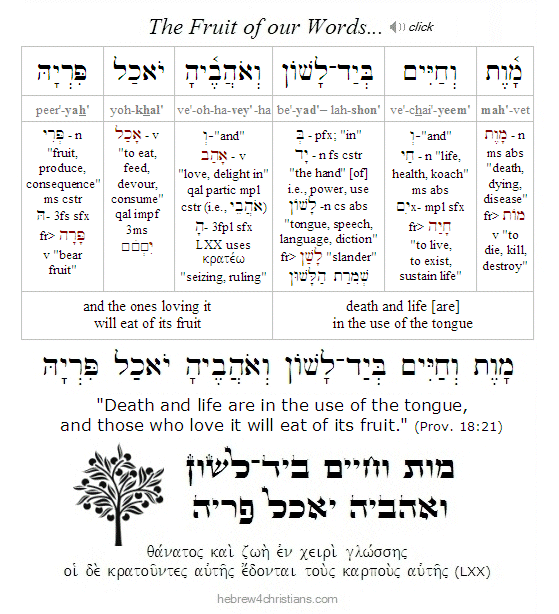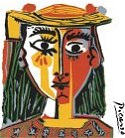|
Our Torah portion this week begins with Moses instructing the leaders of the tribes, saying: "If a person makes a vow (נֶדֶר) ... he shall not break his word; but he shall do according to all he has said" (Num. 30:2). Notice that the phrase "break his word" literally means to profane (חָלַל) his word, which implies that breaking a promise is a type of spiritual defilement... If we do not honor and respect our words, we lose a sense of meaning, and the substance of what we say and think becomes unstable. Such double-mindedness leads to shame, since without inner conviction we become inwardly divided and fragmented, so that we no longer trust ourselves... Being honest (יָשָׁר) implies that what we say and what we mean are unified. An honest person doesn't play games with words but understands that communication is a sacred trust...
We must be careful with our words so that we do not mislead others. This is called shemirat ha'lashon (שְׁמִירַת הַלָּשׁוֹן), or "guarding of the tongue." Yeshua warned us not make formal oaths, but instead to be trustworthy in our words: let your "yes" mean yes, and your "no" mean no... The talmud agrees by saying that 'no' is an oath and 'yes' is an oath." Our words are to be regarded as sacred, as an expression of truth. God has made us inviolable promises, and we are never to play games with that. Just as His word is sacred, so we should strive to be sacred in our speech, too....
The Torah states, "You shall not put a stumbling block (מִכְשׁוֹל) before the blind" (Lev. 19:14). In addition to its literal meaning, the word "blind" figuratively refers to a person unaware of all the facts and who is therefore made vulnerable. Someone who misdirects the blind deceives them, and this violates the 9th commandment not to bear false witness (Exod. 20:16; 23:1). Such deception is called genevat da'at (גְּנֵבַת דַעַת), or "stealing the mind," since it defrauds the other person's trust. For example, it is common practice for politicians to disclose only what they think others need to know, and therefore they offer incomplete versions of truth for the sake of their own self-serving interests. Lying to others is a violation, then, of both the commandment not to steal and the commandment not to bear false witness. "The righteous person hates lies" - דְּבַר־שֶׁקֶר יִשְׂנָא צַדִּיק (Prov. 13:5).
"Deliver me, O LORD, from lying lips, from a deceitful tongue" (Psalm 120:2). The sages say that the virtue of eminut (אֲמִינוּת), or trustworthiness, begins with learning to trust others... Parents are therefore responsible to fulfill their commitments to their children. Rabbi Zera said, "One should not say to a child, 'I will give you something' and then not do so, since that teaches the child to lie" (Sukka 46b). People learn to lie from a sense of betrayal, from the mismatch between professed words and reality. The breakdown of trust leads to the evasive use of words to protect ourselves. We tell others what we think they want to hear or we mislead them to keep ourselves safe. Breaking promises wounds others, and children can learn to become hardhearted, untrusting, and fearful of intimacy as a result.
Hebrew Lesson
Proverbs 18:21 Hebrew reading (click):
 |
|



